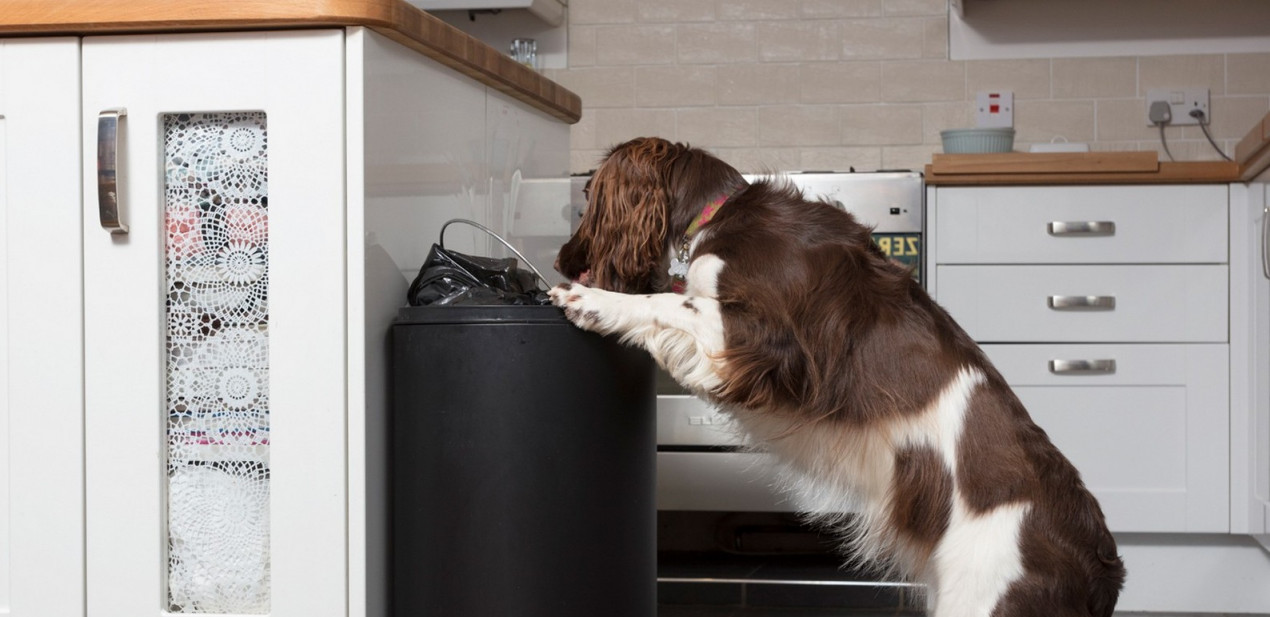We're here to help

My pet's been poisoned, what should I do?
Pet poisonings are one of the most common emergencies our vets and vet nurses see – and statistics show around nine in 10 of these happen while pets are in their own home. During certain holiday seasons – such as winter and Easter – cases go up considerably, often as a result of chocolate ingestion or cats and dogs eating foods infused with raisins, sultanas and currants. Antifreeze poisoning is another common emergency.
If you’re worried that your pet has been poisoned call your vet or, out of hours, your nearest Vets Now pet emergency clinic immediately.
Signs of pet poisoning
Inhaled poisons
Coughing, drooling, difficulty breathing, unconsciousness or coma.
Swallowed poisons
Can cause gastrointestinal irritation, vomiting, diarrhoea, restlessness, staggering, disorientation, convulsions, lethargy, loss of appetite, twitching, dilated pupils, ulcers, heart palpitations, and coma.
Contact poisons
Chemicals or plants that come into contact with your pet’s skin can cause irritation. You may see signs of discomfort, agitation, excessive scratching or licking, swellings (hives) or pain. If severe, skin can appear red and ulcerated or bleeding under the coat.
What steps should I take if my pet has been poisoned?
Try to make a note of the toxin’s name, strength and the amount your pet has ingested or been exposed to. It would also be handy to give the vet your pet’s approximate weight (click here to find out). You should:
- get your pet to fresh air if the poisoning is primarily from noxious fumes or gas, but don’t put yourself at risk
- wear protective gloves and remove the substance from the skin if poisoning is through contact
- use paper towels or clean rags to remove liquids
- never use water, solvents or anything else to remove the poison unless specifically directed to do so by your vet
- never induce vomiting even if you know the poison was swallowed, unless you’ve been specifically directed to do so, as some poisons can cause more damage if vomiting occurs than if left in the stomach
- in the event your vet does advise you to remove the poison use soap or washing up liquid and rinse with lukewarm water to avoid lowering the body temperature
What should I expect at the vets?
Diagnosis can usually only be made if you have observed your pet eating a toxin. It’s impossible to test for all toxins and for some there is no test available. Other tests may be done to assess the function of your pet’s internal organs and other health parameters.
What will the treatment involve?
If your vet knows the poison, they may be able to give an antidote, although not all poisons have antidotes. If the type of poison is uncertain, or there is no antidote, they’ll treat the symptoms to maintain normal function of the organs until the poison has been processed out of the body. Unfortunately, for some poisons, your pet may not survive.
How can I prevent my pet being poisoned?
There are some basic rules pet owners should adhere to prevent their pet being poisoned. These include:
- keep your pet away from areas where chemicals and toxins are being used, such as the kitchen, bathroom or garage
- ensure all chemicals are safely contained and stored out of reach of inquisitive paws and noses when not in use
- do not keep poisonous plants in or around your home
- keep an eye out for poisonous plants when taking your dog outside
- follow instructions on insecticides and rodenticides carefully
- keep human and pet medications stored in a safe and secure location
- label medications carefully
- keep count of how many are in each container as this information will be extremely useful in case of ingestion or an overdose

